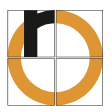Detailed introduction of Rosenheim Technical University of Applied Sciences:
Introduction and Overview
School size: The school currently has more than 5,200 students enrolled in more than 50 bachelor's and master's programs, with 6,400 students in the 2020/21 academic year.
Location: Rosenheim, a city in southeastern Bavaria, Germany, is an important economic and cultural center, an hour's drive from Munich, the capital of Bavaria, and Salzburg, Austria. The school's main campus is in Rosenheim, and there are branch campuses in Mühldorf am Inn, Burghausen and Traunstein in Chiemgau.
History and establishment time
In 1925, local entrepreneurs including Hugo Laue, the owner of a Rosenheim sawmill, founded the Private Wood Technology School. In 1943, the private technical school was nationalized.
In the 1950s, the school began to expand, introduced courses in wood economy and sawmill technology, and was renamed "Rosenheim State Wood Technology School - State Engineering School".
In 1970, the school moved to its current location on Marianne Berger Street, and in 1971, with the entry into force of the Bavarian University of Applied Sciences Act, the school was upgraded to Rosenheim University of Applied Sciences.
In 2014, the school added a campus in Mühldorf am Inn, and in 2016 it expanded further to Burghausen. In the winter semester of 2019/20, the Chiemsee University Campus in Traunstein opened.
School Strength
Teaching Staff: In the 2020/21 academic year, there are 175 academic staff and 568 administrative staff, including 251 scientific and artistic personnel.
Teaching mode: Focus on practical skills training and close connection with the industry. Through cooperative projects with enterprises, internships and graduation theses, students can learn and apply knowledge in practice and prepare for future career development.
Scientific research: The school has multiple research institutions, focusing on applied research and development, promoting technology transformation and innovation. For example, the Applicator Center is engaged in research and development involving applications, especially for small and medium-sized enterprises, with a focus on wood technology and synthetic materials technology; the Institute of Technology Transformation and Continuing Education organizes academic continuing education service projects that provide career-matching services to the economic community.
Nature of the institution
The school is a public university of applied sciences.
Educational philosophy
Emphasizing practical application, interdisciplinary learning and international vision, it is committed to cultivating professionals with innovative ability, social responsibility and global competitiveness, so that students can succeed in a rapidly changing social and economic environment.
Key disciplines and departments
Key disciplines: Wood engineering and architecture, computer science, engineering, business, health management, physical therapy, nursing, etc. are the key disciplines of the school.
Department settings: Department The school has the Faculty of Applied Health and Social Sciences, the Faculty of Applied Natural Sciences and Humanities, the Faculty of Business Administration, the Faculty of Wood Technology and Architecture, the Faculty of Computer Science, the Faculty of Interior Architecture and Design, the Faculty of Engineering, the Faculty of Management and Engineering, etc., covering a wide range of disciplines from natural sciences, engineering technology to humanities, social and health sciences.
Ranking
The school has no clear international comprehensive ranking, but it has a certain reputation and influence among the universities of applied sciences in Germany. Its majors such as wood engineering are highly recognized in the industry.
Expenses
Tuition fees: German public universities usually waive tuition fees for domestic students and EU students, but they need to pay a small semester fee. The tuition fees for non-EU students vary depending on the major. The average tuition fee per semester for undergraduate courses is about 1500 euros, and the master's program can be as high as about 3000 euros.
Other expenses: Student accommodation costs about 200-400 euros per month, and students need to bear the cost of purchasing books, learning materials, participating in internships and practical activities.
Campus
Campus environment: The main campus and each branch campus have a beautiful environment and complete hardware facilities. There are modern teaching buildings, libraries, laboratories, sports facilities, etc. on campus, which provide convenient conditions for students' study and life.
Campus culture: The school focuses on international exchanges and cooperation, has students and teachers from all over the world, and creates a multicultural campus atmosphere. In addition, the school also organizes various academic lectures, cultural activities, sports competitions, etc. to enrich students' extracurricular life and promote exchanges and cooperation among students.
-

Heidelberg University
-

University of Freiburg
-

University of Jena
-

University of Marburg
-

University of Rostock
-

University of Halle-Wittenberg
-

University of Bayreuth
-

Leipzig University
-

University of Tübingen
-

Humboldt University of Berlin
-

Mesoamerican University
-

Istmo University
-

Mariano Galvez University of Guatemala
-

Regional University of Guatemala
-

Galileo University
-

Francisco Marroquín University
-

Rafael Landívar University
-

University of the Valley of Guatemala
-

University of San Carlos of Guatemala
-

Technological Institute of Tlaxcala Plateau
-

Golfo University
-

Technological University of South Sonora
-

Technological University of Huejotzingo
-

Tizimín Institute of Technology
-

Chilpancingo Institute of Technology

